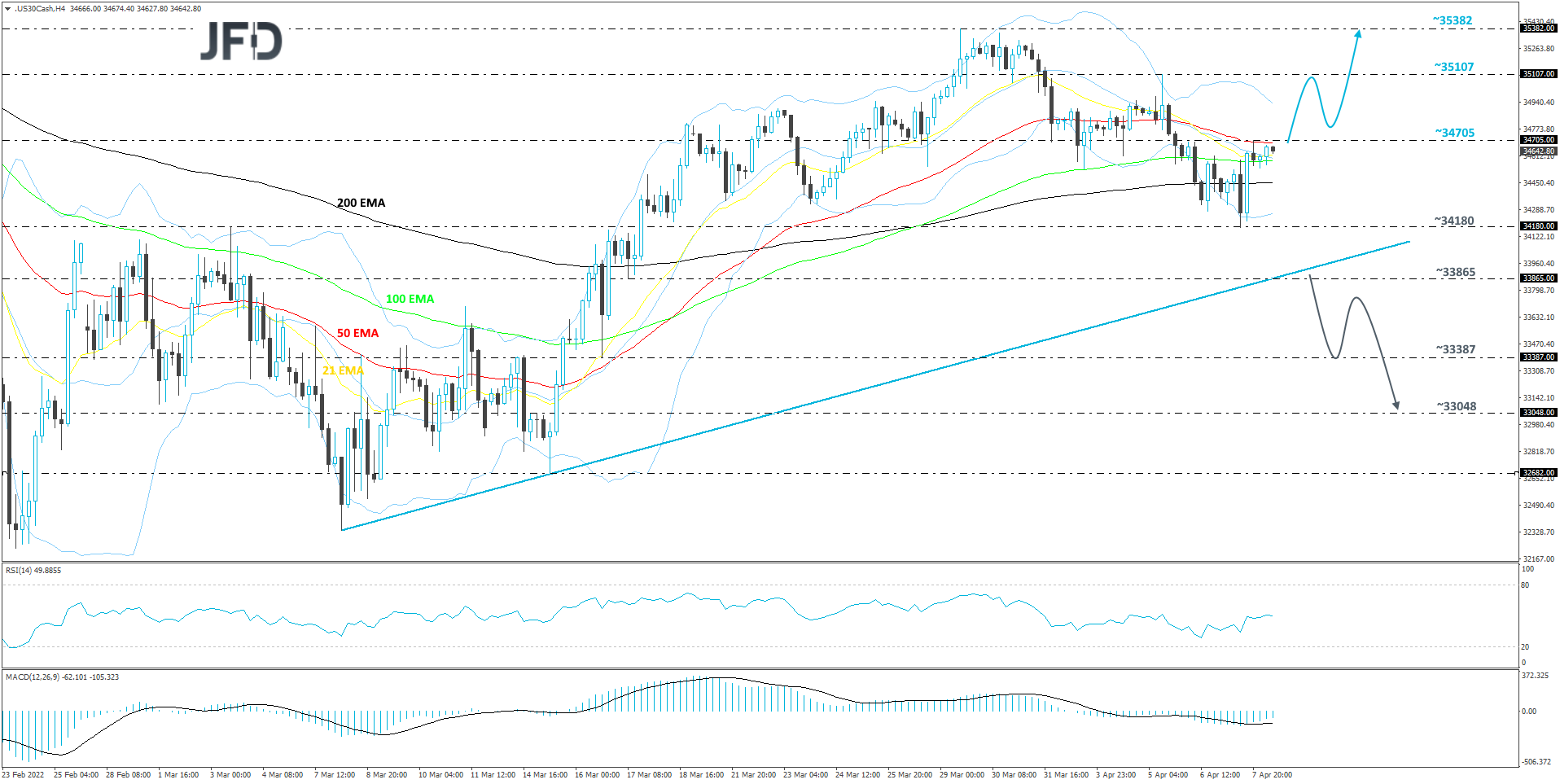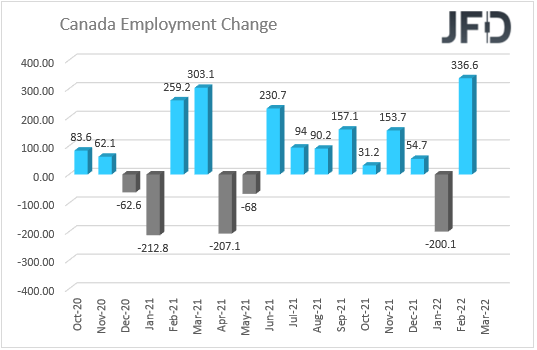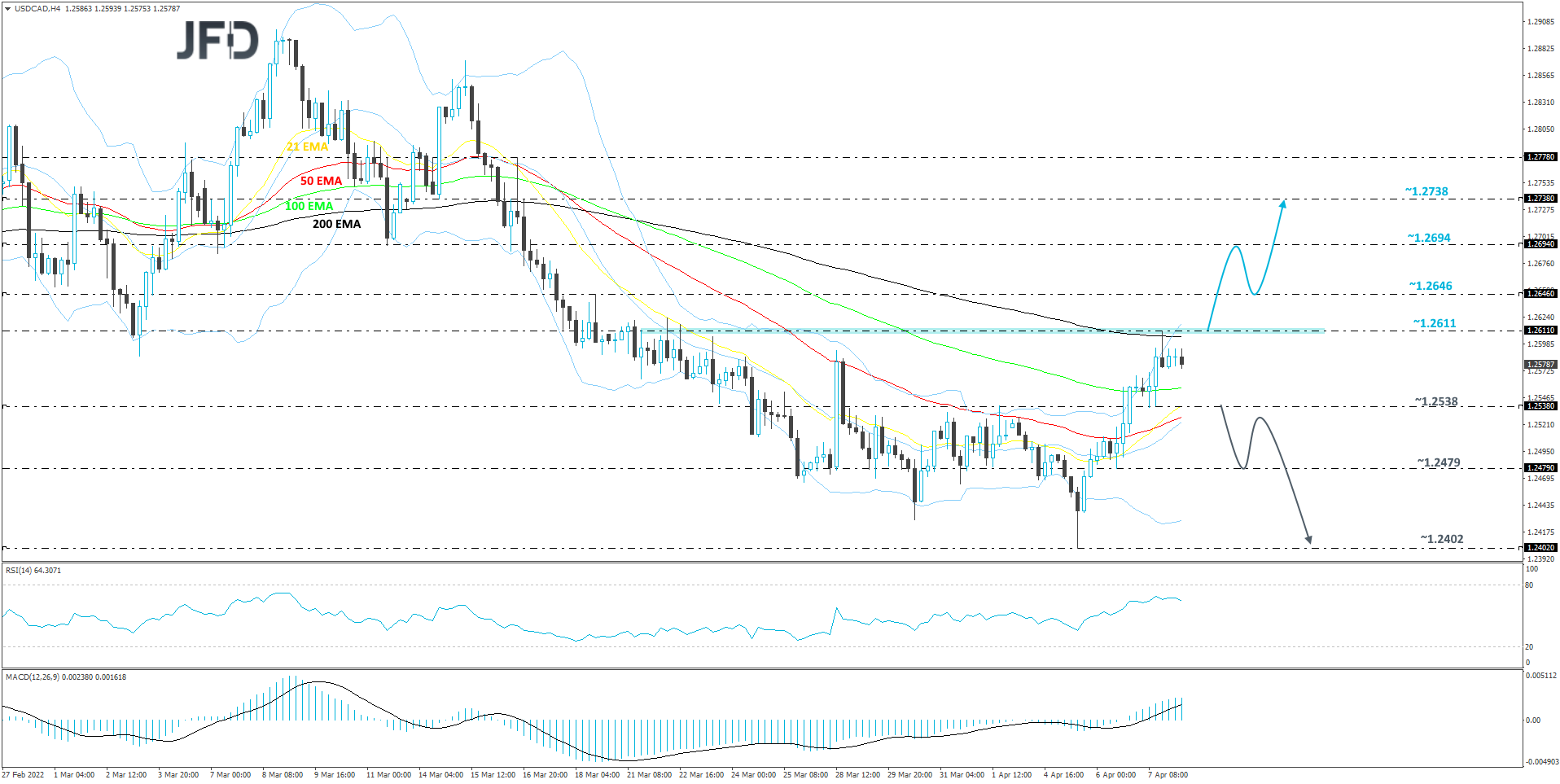Yesterday, the major European bourses ended their sessions in the red. The U.S. indices managed to end the trading session with minor gains after experiencing some weakness at the beginning of the trading day. Europe will be relatively quiet on the economic data front. However, it will be Canada’s turn to release employment numbers for March.
The Equity World Remains Mixed
Yesterday, the major European bourses ended their sessions in the red. In Europe, markets continued to slide due to increased inflationary risks. The ECB believes that the conditions for lifting rates were fulfilled or are ready to be fulfilled, as mentioned in the ECB’s account of the monetary policy meeting, which was delivered yesterday. The committee did mention in their last meeting that the asset purchase program could end sometime in Q3 of 2022 if the inflation outlook does not weaken. The rates would be raised only after the asset purchase program had ended.
The U.S. indices managed to end the trading session with minor gains after experiencing some weakness at the beginning of the trading day. Investors were still digesting the FOMC meeting minutes, released on Wednesday, which added more fear to the market as Fed favors more rapid rate hikes. That said, we believe there might be room for some recovery before the next Fed meeting at the beginning of May, as market participants start to price in what is already known. Investors might also take advantage of the lower valuations of some stocks, which may help indices to bounce, at least in the near term.
DJIA – Technical Outlook
Yesterday, the Dow Jones reversed higher, ending the trading session in the green. Overall, the price continues to trade above a short-term tentative upside support line drawn from the low of Mar. 8. The move lower, seen in the first half of this week, could be considered a temporary correction before another possible drift higher.
A break above yesterday’s high, at 34705, would be required. This way, more bulls could run into the field, potentially helping the index move towards the 35107 hurdle, marked by the high of Apr. 5. If the bulls remain strong, the next target might be at 35382, marked by the high of Mar. 29.
Alternatively, if the index breaks below the aforementioned upside line and then falls below the 33865 hurdle, marked by the low of Mar. 17, that may change the direction of the current short-term trend, potentially opening the door to the 33387 zone, marked by the low of Mar. 16, where a temporary hold-up might occur. If the bears continue to advance, this could lead DJIA to the 33048 level, marked by an intraday swing high of Mar. 15.

Canada’s Turn To Release Job Numbers
Europe will be relatively quiet on the economic data front, however, it will be Canada’s turn to release employment numbers for March. The unemployment rate figure is expected to tick lower, going from 5.5% to 5.4%. Currently, there is no forecast available for the participation rate, but we know that it has been coming out around the same level, slightly above the 65% mark.
The employment change figure is believed to have declined strongly, going from 336.6k to 80.0k. If the actual reading comes out even lower, this could hurt the Canadian dollar. That said, the effect might be temporary, as CAD may remain vulnerable to movements in oil prices.

USD/CAD – Technical Outlook
After reversing higher on Apr. 5, USD/CAD moved even higher but found resistance near the 200 EMA on our 4-hour chart. Suppose the pair continues to balance above the rest of the EMAs. In that case, there is a possibility to see a further move, given that the U.S. dollar remains under buying interest and the price of oil is currently moving lower.
If eventually, USD/CAD breaks above the current highest point of April, at 1.2611, this will confirm a forthcoming higher high and place the rate above the 200 EMA. More buyers could join in and drag the pair to the 1.2646 obstacle or the 1.2694 hurdle, marked by the inside swing low of Mar. 11. If the buying doesn’t stop there, the next potential target might be at 1.2738, an intraday swing high of Mar. 16.
Alternatively, if the rate drops below yesterday’s low, at 1.2538, this could also place the pair below all the EMAs, attracting more sellers into the game. USD/CAD may drift to the 1.2479 hurdle, a break of which might set the stage for a move to the current lowest point of April, at 1.2402.

As For The Rest Of Today’s Events
Some market participants will be keeping a close eye on the Russian inflation numbers, both MoM and YoY, for March. The MoM reading is expected to double, going from +1.1% to +2.1%. The YoY one is forecasted to go from +9.2% to +16.9%.
The explanation for such high numbers is clear, as the country is experiencing a shortage in supply of certain imported goods due to sanctions from the West. Also, Russia will deliver its GDP growth rate for Q4, which is believed to have improved from +4.3% to +5.0%.
If that’s the case, this may give the ruble a slight boost against its major counterparts. However, the currency will mostly remain vulnerable to the situation in Ukraine and the progress in the negotiations between Russia and the EU on the method of payments for Russian gas.
